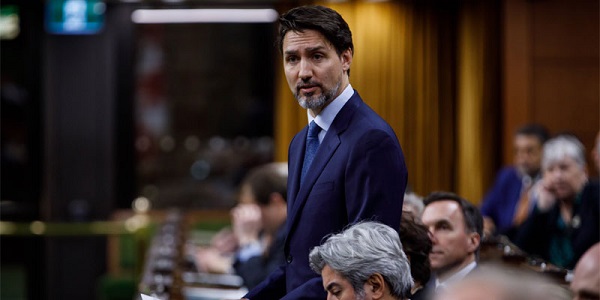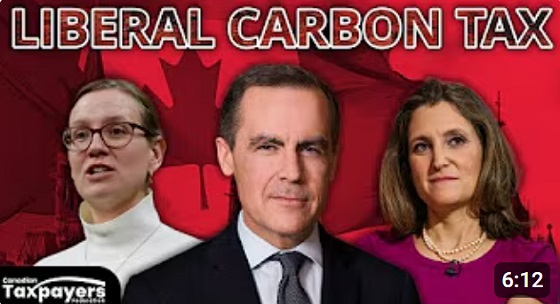Business
Federal government gets failing grade for fiscal transparency and accountability

From the Fraser Institute
By Jake Fuss and Grady Munro
Last week, Yves Giroux, the Parliamentary Budgetary Officer, raised a rarely-talked-about issue with the federal government—that is, the release of important fiscal documents is being delayed further and further each year. While at first glance this may not seem like a big deal, it’s a sign of declining transparency—an issue all Canadians should care about.
According to Giroux, the Trudeau government’s failure to yet release this year’s federal public accounts—which will report the final numbers for the 2023-24 fiscal year—“goes against fiscal transparency and accountability” that Canadians should expect.
While budgets outline the government’s plan for spending and revenue each year, the public accounts tell us whether or not the government actually stuck to this plan. Typically, the federal government releases the public accounts in October. Yet we’re entering December and last year’s federal finances remain in question.
Provinces also release public accounts, and though they have in the past displayed a similar tardiness, this year every provincial government has released their public accounts well before the federal government.
Why is this important?
Parliamentarians are expected to make important decisions that affect revenues and spending, yet many of them currently do not have the necessary information to make decisions on behalf of their constituents. Moreover, the federal government makes important commitments—referred to as “fiscal anchors”—to help ensure the sustainability of Canada’s finances. The public accounts are a critical tool for both elected officials and the public to hold government accountable to those commitments. Simply put, these fiscal documents are how we determine whether or not the government is actually staying true to its promises.
Some observers claim the Trudeau government may be intentionally delaying the release of this year’s public accounts to avoid this scrutiny. In its 2023 fall update, and again in the 2024 budget, the government promised to hold the 2023-24 deficit to $40.0 billion. Yet a recent report from the PBO suggests the deficit will instead be $46.8 billion. Since the government might be forced to deliver bad news, Giroux suggested it could be delaying the release “to find a more appropriate time where it gathers less attention.” Those are not the actions of a transparent and accountable government.
The issue of delayed fiscal releases is not limited to the public accounts. The Trudeau government has also released federal budgets later than usual. For example, this year it released the 2024 federal budget on April 16. The budget presents the fiscal plan for the upcoming fiscal year that begins April 1, meaning the federal government didn’t release its plan until more than two weeks after the fiscal year had started. In fact, three of the last four budgets from the Trudeau government have been released after the fiscal year started.
Similarly, the Trudeau government has also heretofore failed to release this year’s fall economic statement, which provides a mid-year update on the government’s budget plan. Again, the government has pushed this release later into the year compared to the past. From 2000 to 2014, no fiscal update was released later than November 22. Yet the Trudeau government has delayed the release of this update into December twice so far (in 2019 and 2021).
Canadians should expect their federal government to release important fiscal information in a timely and transparent manner. Unfortunately, transparency and accountability don’t appear high on this government’s list of priorities.
2025 Federal Election
MEI-Ipsos poll: 56 per cent of Canadians support increasing access to non-governmental healthcare providers

-
Most believe private providers can deliver services faster than government-run hospitals
-
77 per cent of Canadians say their provincial healthcare system is too bureaucratic
Canadians are increasingly in favour of breaking the government monopoly over health care by opening the door to independent providers and cross-border treatments, an MEI-Ipsos poll has revealed.
“Canadians from coast to coast are signalling they want to see more involvement from independent health providers in our health system,” explains Emmanuelle B. Faubert, economist at the MEI. “They understand that universal access doesn’t mean government-run, and that consistent failures to deliver timely care in government hospitals are a feature of the current system.”
Support for independent health care is on the rise, with 56 per cent of respondents in favour of allowing patients to access services provided by independent health entrepreneurs. Only 25 per cent oppose this.
In Quebec, support is especially strong, with 68 per cent endorsing this change.
Favourable views of accessing care through a mixed system are widespread, with three quarters of respondents stating that private entrepreneurs can deliver healthcare services faster than hospitals managed by the government. This is up four percentage points from last year.
Countries like Sweden and France combine universal coverage with independent providers and deliver faster, more accessible care. When informed about how these health systems run, nearly two in three Canadians favour adopting such models.
The poll also finds that 73 per cent of Canadians support allowing patients to receive treatment abroad with provincial coverage, which could help reduce long wait times at home.
Common in the European Union, this “cross-border directive” enabled 450,000 patients to access elective surgeries in 2022, with costs reimbursed as if they had been treated in their home country.
There’s a growing consensus that provincial healthcare systems are overly bureaucratic, with the strongest agreement in Alberta, B.C., and Quebec. The proportion of Canadians holding this view has risen by 16 percentage points since 2020.
Nor do Canadians see more spending as being a solution: over half say the current pace of healthcare spending in their province is unsustainable.
“Governments shouldn’t keep doubling down on what isn’t working. Instead, they should look at what works abroad,” says Ms. Faubert. “Canadians have made it clear they want to shift gears; now it’s up to policymakers to show they’re listening.”
A sample of 1,164 Canadians aged 18 and older was polled between March 24th and March 28th, 2025. The margin of error is ±3.3 percentage points, 19 times out of 20.
The results of the MEI-Ipsos poll are available here.
* * *
The MEI is an independent public policy think tank with offices in Montreal, Ottawa, and Calgary. Through its publications, media appearances, and advisory services to policymakers, the MEI stimulates public policy debate and reforms based on sound economics and entrepreneurship.
2025 Federal Election
POLL: Canadians say industrial carbon tax makes life more expensive

The Canadian Taxpayers Federation released Leger polling showing 70 per cent of Canadians believe businesses pass on most or some of the cost of the industrial carbon tax to consumers. Meanwhile, just nine per cent believe businesses pay most of the cost.
“The poll shows Canadians understand that a carbon tax on business is a carbon tax on Canadians that makes life more expensive,” said Franco Terrazzano, CTF Federal Director. “Only nine per cent of Canadians believe Liberal Leader Mark Carney’s claim that businesses will pay most of the cost of his carbon tax.
“Canadians have a simple question for Carney: How much will your carbon tax cost?”
The federal government currently imposes an industrial carbon tax on oil and gas, steel and fertilizer businesses, among others.
Carney said he would “improve and tighten” the industrial carbon tax and extend the “framework to 2035.” Carney also said that by “changing the carbon tax … We are making the large companies pay for everybody.”
The Leger poll asked Canadians who they think ultimately pays the industrial carbon tax. Results of the poll show:
- 44 per cent say most of the cost is passed on to consumers
- 26 per cent say some of the cost is passed on to consumers
- 9 per cent say businesses pay most of the cost
- 21 per cent don’t know
Among those decided on the issue, 89 per cent of Canadians say businesses pass on most or some of the cost to consumers.
“Carbon taxes on refineries make gas more expensive, carbon taxes on utilities make home heating more expensive and carbon taxes on fertilizer plants increase costs for farmers and that makes groceries more expensive,” Terrazzano said. “A carbon tax on business will push our entrepreneurs to cut production in Canada and increase production south of the border and that means higher prices and fewer jobs for Canadians.”
-

 2025 Federal Election2 days ago
2025 Federal Election2 days agoNo Matter The Winner – My Canada Is Gone
-

 2025 Federal Election2 days ago
2025 Federal Election2 days agoASK YOURSELF! – Can Canada Endure, or Afford the Economic Stagnation of Carney’s Costly Climate Vision?
-

 Alberta2 days ago
Alberta2 days agoMade in Alberta! Province makes it easier to support local products with Buy Local program
-

 2025 Federal Election2 days ago
2025 Federal Election2 days agoCSIS Warned Beijing Would Brand Conservatives as Trumpian. Now Carney’s Campaign Is Doing It.
-

 Alberta2 days ago
Alberta2 days agoProvince to expand services provided by Alberta Sheriffs: New policing option for municipalities
-

 2025 Federal Election2 days ago
2025 Federal Election2 days agoInside Buttongate: How the Liberal Swamp Tried to Smear the Conservative Movement — and Got Exposed
-

 Bruce Dowbiggin1 day ago
Bruce Dowbiggin1 day agoIs HNIC Ready For The Winnipeg Jets To Be Canada’s Heroes?
-

 Dr. Robert Malone1 day ago
Dr. Robert Malone1 day agoThe West Texas Measles Outbreak as a Societal and Political Mirror










